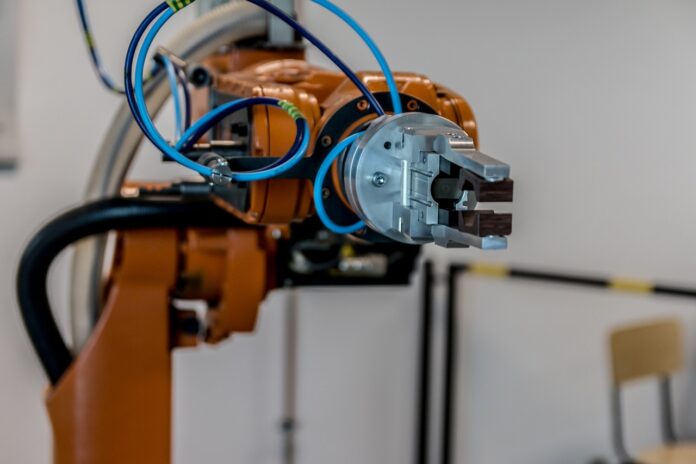How AI is Revolutionizing Manufacturing: Examples and Applications
Artificial intelligence (AI) is transforming the manufacturing industry by improving efficiency, quality control, and predictive maintenance. With its ability to analyze large amounts of data, identify patterns, and learn from experience, AI is enabling manufacturers to optimize processes and improve performance.
The Benefits of AI in Manufacturing
Efficiency and Cost benefits
One of the key benefits of AI in manufacturing is its ability to improve efficiency and reduce costs. By automating processes and optimizing workflows, AI can help manufacturers reduce waste, increase productivity, and improve overall performance. For example, AI-powered predictive maintenance can detect potential problems before they occur, reducing downtime and maintenance costs.
Enhanced Quality control
Another advantage of AI in manufacturing is its ability to enhance quality control. With AI-powered quality control systems, manufacturers can detect defects and anomalies in real-time, ensuring that products meet high standards of quality and safety.
Real-World Applications of AI in Manufacturing
AI is already being used in various areas of manufacturing, from supply chain management and inventory optimization to predictive maintenance and quality control. For example, some manufacturers are using AI-powered predictive maintenance to detect potential problems in machinery before they occur, while others are using AI to optimize supply chain logistics and improve inventory management.
How AI is Improving Quality Control and Predictive Maintenance
AI is also improving quality control and predictive maintenance in manufacturing. By analyzing data from sensors and other sources, AI can detect potential issues and anomalies in real-time, allowing manufacturers to address them before they become major problems. This not only improves product quality and reliability, but also reduces downtime and maintenance costs.
Potential of High-Powered Lasers in Unlocking Strong Quantum Secrets
The Future of AI in Manufacturing
As AI becomes more integrated into manufacturing, it has the potential to transform the industry even further. For example, AI-powered robotics and automation could lead to new levels of efficiency and productivity, while AI-powered analytics could help manufacturers optimize processes and improve performance.
In conclusion, AI is revolutionizing the manufacturing industry by improving efficiency, quality control, and predictive maintenance. By embracing this technology and being mindful of its potential applications, manufacturers can stay ahead of the curve and provide better products and services to customers.

